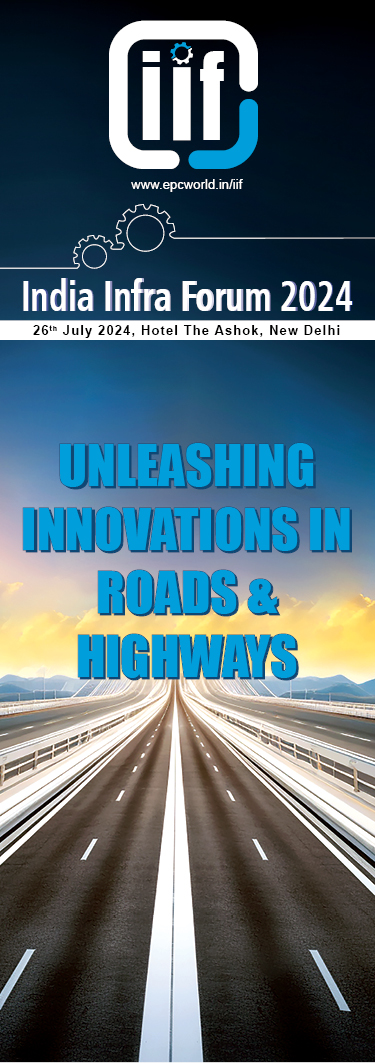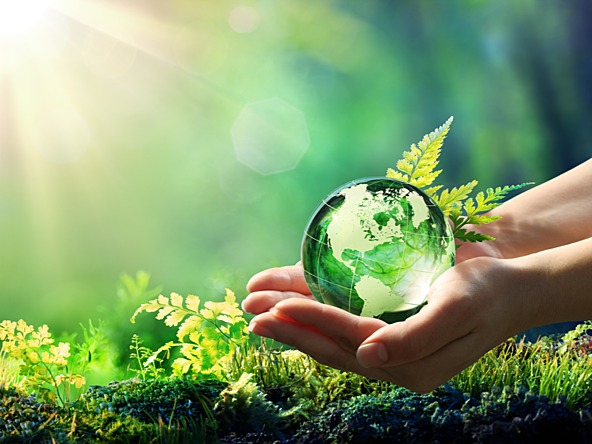by Dr. Pramod Chaudhari, Founder and Executive Director, Praj Industries
The fifth of June has long been celebrated as Environment Day around the world. It is time however, to drop the celebratory demeanour that alienates humanity from the very womb of its existence and to acknowledge the need to make serious and consistent efforts to heal what we have singlehandedly damaged – the environment! It is time to look at this ‘Day’ as an eye opener and reminder that we are responsible for the state and health of our planet that we shall leave one day to our children
I remember learning in school how energy is transferred and converted from one living being to another in the natural ecological cycle. Let me quickly go over it. At the base of the pyramid are plants which make their own food through photosynthesis. Certain species called the herbivores rely on this vegetation for food. Small herbivorous animals become food for small carnivorous species. At the higher end are the bigger carnivores that prey on bigger herbivores. Humans, at the so called top of the pyramid make all of these their food!
This simple diagram from the school textbooks becomes all the more poignant today because ironically, humans are the only beings powerful and greedy enough to destroy every link in this natural food chain! We have already done irredeemable harm to the biodiversity by encroaching upon hundreds and thousands of hectares of forests. Even though humans acquired the skill of farming to produce their own food, but excessive use of chemicals and pesticides to squeeze out maximum yield robbed the soil of nutrients, rendering the soil infertile over the years, not to mention the carbon emission that has damaged the ecosystem. An exploding population, race for development and urbanization has led to the invasion of the natural habitat of other species. The recent addition has been the unbridled use and mismanaged disposal of plastic that has found its way into our oceans and causing threat to marine life! In this senseless quest for progress we forget that by destroying other species on earth we are fast getting closer to our own end.
We focus here on the blazing example of fossil fuels. The impact of carbon emission from the incessant use of fossil fuels in transport and industry is unmistakable. It manifests in health issues, even leading to fatalities. The green house gases produced in the process accelerate global warming which in turn leads to extreme phenomenons like droughts and floods in different parts of the world. On the other hand, melting of polar icebergs poses the imminent threat of sea levels rising to dangerous levels, completely inundating some of the coastal settlement. The crux is that when humanity continues to ravage Nature’s riches without much efforts to give back, it may end up paying heavy penalties.
Albeit recent, this realization has led us to the idea of sustainable development which implies development with minimum impact on the environment. Unfortunately though, it is not being implemented with the required earnest. The world witnessed four phases of industrial revolution but none considered mitigating the adverse impact of modern development on natural resources. In fact there have only been sporadic attempts at conservation from people and governments. While the fourth phase of industrial revolution unfolded less than a decade ago, the world is already talking about Industry 5.0, the fifth generation revolution. This new chapter however contemplates two parallel thoughts – one envisages Cobot, the cohabitation of human and robots while the other promotes the concept of a bio-economy. The 23rd United Nations Conference on Climate Change in 2017 even presented a vision document on the same.
To me, this is a subject that needs deep contemplation and concrete action in equal measure. On the occasion of the World Environment Day, I shall try to put it in perspective by examining its complex facets.
The World Environment Day started in the year 1972. It was the first time that the issue of ecological conservation was addressed in a United Nations meet in Stockholm, Sweden. Since then it has been under constant focus the world over. The Conference of Parties (Cop 21) organized in 2015 in Paris by the UN set some clearly defined goals for sustainable development, to be achieved by the year 2030. This marked a significant milestone in the endeavour of global ecological conservation. The next conference (Cop 26) is planned in Glasgow, this November. Environmentalists, conservationists, activists, businesses likely to be impacted by environmental policy change and governments across the world eagerly await the outcome of this event as several nations shall come together to accomplish the targets set in the Paris Agreement.COP 26 Summit shall focus on - correcting the imbalance between carbon emission and absorption levels by the middle of the century, protecting those species and habitats that have come under threat because of climate change, identifying sources and defining a plan to fund the earlier mentioned objectives, and finally motivating and mobilizing all the participants in the process of accomplishing the said targets. The outcome of COP 26 is expected to give a robust impetus and direction to environment conservation. However, six years after the Paris Agreement, we still have a lot of ground to cover towards sustainable development.
I would like to draw your attention towards some numbers here. The annual production of plastic in 1950 was 20 lac tons. In 2015, the year of the Paris Conference, it was 41.9 crore tons, an increase of more than 200 times! While we might say in the lighter vein that the pieces of plastic dumped in the oceans must be more than the number of fishes, it is a sad fact that every third fish caught has plastic bits in its gut! On the other hand, rising temperature and rampant use of chemicals in agriculture are a real threat to water and food security. The world population is expected to reach 9 billion by 2050, when the demand for food shall be 70% more than the present. Even today, 82 crore people in this world do not get enough food. It is estimated that by 2025, about two third of the population would be facing water scarcity.
A major cause of climate change is the use of fossil fuels. In 2018, 89% of the total carbon emission on earth was because of fossil fuels used in transport and industry. Coal is responsible for one third of the global temperature rise. While this environmental imbalance goes on worsening insidiously, the human race, which is the most dependent beneficiary of the food chain, continues to waste food in mammoth proportions!
We might still have been in denial about the gravity of the situation, but for the recent statement of the Department of Environment and Climate Change of the Maharashtra government. It has attributed these cyclones to the rise in temperatures on the ocean surface. Although Mumbai, India’s financial capital has escaped the coastal onslaught so far, the day is not far when calamity will be at its doorstep.
That brings us to a discussion on how to resolve this situation. The Paris Agreement aims at reducing carbon emission by 45% from the levels registered in 2010. It also talks about correcting the imbalance of carbon emission and carbon absorption by the middle of the century. This means in simple words, that countries the world over will have to take steps to ensure that by 2050, the carbon emitted globally is completely absorbed. This mission is aptly named – Race to Zero.
While this goal is challenging, it is definitely not unattainable. Let us not forget that Nature herself can, in intriguing ways, support modern development. The need is to think differently and to explore in what better, congenial ways we can collaborate with Nature to attain development. Sunshine, wind, biomass are some generous energy sources that work out to be not just sustainable but also economical.
Bio-fuel or electric vehicles are worthwhile environment-friendly alternatives, especially for transportation which is a primary point of consumption. However as far as electric vehicles go, the proposition makes sense only if the electricity used is generated from renewable energy sources. Electric vehicles also need an extensive and efficient network of charging stations and a responsible system for disposal of dysfunctional batteries. Electric transportation also requires completely new technology development because of which it would take considerable time to prove cost effective. Bio-fuels on the other hand can work with the same technology, manufacturing facility and distribution network. While fossil fuels are dependent on hydrocarbons, bio-fuels are based on carbohydrates. This means the gases emitted on burning them would be environment friendly. Also, since agricultural waste is the primary raw material for bio-fuel production, it would create a new income source for the rural economy. We, at Praj have developed the technology to manufacture bio-fuel from agricultural waste. This has also received a positive response from the government, especially in the light of the National Policy on Bio-fuels in 2018 which has boosted 2G ethanol production in the country, as well as the project Sustainable Alternatives towards Affordable Transportation, SATAT.
India has taken a significant step by advancing the earlier target of mixing 20% ethanol in regular fuel by 2030, to the year 2025. Further, bio-fuel would not just be used for land transportation but extensively for water and air transportation too. The World Economic Forum has started a special mission of ‘Clean skies for tomorrow’ on this front. It aims to support bio-fuels with minimal carbon discharge for use in the aviation industry.
While bio-fuels can run the entire transportation sector, it has the potential to fuel a complete bio-fuel economy. This is because bio-fuels are produced from agricultural waste, which is available abundantly in the country and can in fact infuse the rural economy with consistent earnings. Going further, besides fuel, there is scope for agricultural waste to be processed into alternative plastic and certain chemicals, the technology for which is currently being developed. Simply put, the technology to manufacture fuel that drives the industry and also certain products produced by the industry will soon transform the way we run the economy. This is indeed the emergence of a bio-economy model that would be the special area of focus in Industry 5.0.
My focus is constantly on the industry because it is the biggest factor that drives the economy. Industrial waste and effluents are yet another area that needs attention. Huge amounts of harmful chemicals leave factories and ultimately end up in the rivers and oceans, harming life beyond repair. So much so, that the Pollution Board has put in place regulations to treat these pollutants within the factory premises. Industrial units not only have the wherewithal to implement it by ensuring zero liquid discharge (ZLD), but are morally responsible also to do so.
Our efforts together aim to minimize carbon emission as it cannot be totally eliminated. However, we can strive to create enough resources that would help in increased carbon absorption too. Forests, fertile land and marshlands are useful in absorbing large amounts of carbon in the environment. The conservation of these however largely depends upon the government’s initiative.
We as a race have been used to taking from Nature everything that helps in modern development. Nature on the other hand has given us a long rope by absorbing the adverse effects of all the toxic waste we have released. It is time to give back as much goodness as we have borrowed from earth.






